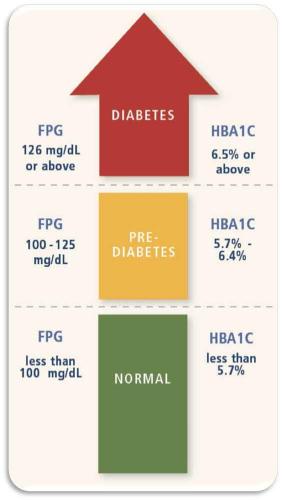What is Prediabetes?
What is Prediabetes?
By Unknown
Updated
5 minute read
Prediabetes means your blood glucose levels are high, but not high enough to be diagnosed with diabetes. Right now, we have about 79 million Americans that live with prediabetes. However, only about 7% of people with prediabetes are aware of their condition. There are risks associated with prediabetes such as Type 2 diabetes, cardiovascular disease, and even long-term damage to your body.
What is your risk of getting diabetes if you have prediabetes?
- Family and health history risk factors (you cannot do anything about these factors!)
- Age >45 years
- Family History: a parent or sibling with type 2 disease
- Ethnicity (African American, Pacific Islander, Hispanic American, Asian American)
- Previous gestational diabetes or delivery of a baby over 9 pounds.
- Health Risk factors (you can work to change these factors over time!)
- Weight: overweight or obese (BMI 25 or greater)
- Cholesterol Levels (HDL <40 or triglycerides >150)
- High Blood Pressure (130/85 or greater
- Lifestyle Risk Factors (you can do a lot about this risk factors—even starting today!)
- No regular exercise
- Unhealthy diet
- Smoking
Most people can prevent diabetes if they begin to incorporate lifestyle changes, such as physical activity, diet changes, and stress management into their lives. A 10 year study called the Diabetes Prevention Program (DPP) showed that lifestyle changes and medication (metformin) together reduced the risk of developing diabetes by 89 to 100% for all ages, sexes, and ethnic groups!
Key lifestyle changes to prevent diabetes?
- Lose weight (lose 5% of your total body weight, around 10 pounds for a 200 pound person, can substantially decrease your chances of having diabetes)
- Be more active each day (walking counts!)
- Make wise food choices
- Stop smoking – or don’t start
- Take medication as prescribed
Visit your doctor and have your blood glucose tested every year.
